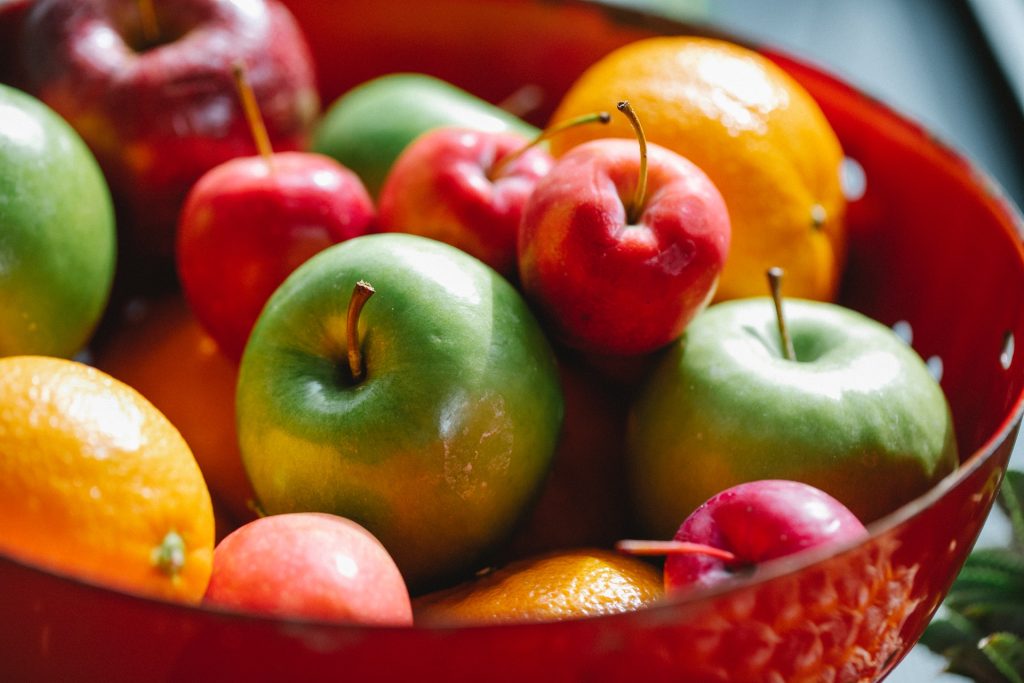Learn how clean eating can help alleviate anxiety symptoms and promote overall mental well-being.
Discover the Benefits of Clean Eating for Anxiety Relief
Do you ever feel like your anxiety is spiraling out of control? It’s time to take back the power and discover the benefits of clean eating for anxiety relief! By understanding the connection between diet and anxiety, exploring the principles of clean eating, and implementing a clean eating lifestyle, you can alleviate anxiety and reclaim your peace of mind. Let’s dive in!
Understanding the Connection Between Diet and Anxiety

Did you know that what you eat can have a profound impact on your mental health? The role of nutrition in mental health is often overlooked, but it’s time to give it the attention it deserves. The food we consume directly affects the functioning of our brain and can either fuel or sabotage our emotional well-being.
When anxiety manifests in the body, it can wreak havoc on our physical and mental health. From racing hearts to sweaty palms, anxiety doesn’t discriminate. But fear not, my friend, because clean eating can come to your rescue!
Imagine starting your day with a hearty breakfast consisting of whole grains, fruits, and lean proteins. This balanced meal provides a steady release of energy throughout the morning, keeping your blood sugar levels stable and preventing sudden spikes and crashes that can contribute to anxiety symptoms. By nourishing your body with wholesome foods, you’re giving it the necessary nutrients to function optimally, including the production of neurotransmitters that regulate mood.
Speaking of neurotransmitters, did you know that serotonin, often referred to as the “feel-good” hormone, is primarily produced in the gut? Yes, you heard that right! Your gut health plays a significant role in your mental well-being. Incorporating probiotic-rich foods like yogurt, kefir, and sauerkraut into your diet can promote a healthy gut microbiome, which in turn supports the production of serotonin. So, the next time you’re feeling anxious, consider reaching for a serving of probiotics to give your mood a boost.
Now, let’s talk about the impact of sugar on anxiety. We all know that consuming excessive amounts of sugar can lead to weight gain and other physical health issues, but did you know it can also contribute to anxiety? When we indulge in sugary treats, our blood sugar levels skyrocket, giving us a temporary energy boost. However, this spike is often followed by a crash, leaving us feeling irritable, fatigued, and more susceptible to anxiety symptoms. By reducing your intake of refined sugars and opting for natural sweeteners like honey or maple syrup, you can help stabilize your blood sugar levels and promote a more balanced mood.
Furthermore, incorporating omega-3 fatty acids into your diet can have a positive impact on anxiety. These essential fats are found in fatty fish like salmon, mackerel, and sardines, as well as in walnuts and flaxseeds. Omega-3 fatty acids are known for their anti-inflammatory properties, which can help reduce inflammation in the brain and support overall mental well-being. So, don’t forget to include these brain-boosting foods in your meal plan!
In addition to specific foods, it’s essential to consider your overall diet pattern. A diet rich in whole foods, such as fruits, vegetables, whole grains, and lean proteins, provides a wide range of nutrients that support brain health. On the other hand, a diet high in processed foods, saturated fats, and added sugars can contribute to inflammation and oxidative stress, which may worsen anxiety symptoms. By adopting a balanced and nutritious diet, you’re not only nourishing your body but also taking care of your mind.
So, the next time you’re feeling overwhelmed by anxiety, take a moment to evaluate your diet. Are you fueling your body with the nutrients it needs to thrive? By making conscious choices and incorporating anxiety-reducing foods into your meals, you can take an active role in managing your mental health. Remember, every bite counts!
The Principles of Clean Eating
Clean eating isn’t just another diet fad – it’s a lifestyle that focuses on nourishing your body with whole, unprocessed foods. At its core, clean eating is about embracing foods in their natural state and avoiding those that are stripped of their nutritional value.
So, what does clean eating look like? It’s all about loading your plate with fresh fruits and vegetables, whole grains, lean proteins, and healthy fats. By ditching the processed junk and opting for nutrient-dense foods, you’re giving your body the fuel it needs to function at its best.
When it comes to clean eating, the emphasis is on quality over quantity. Instead of counting calories or restricting portion sizes, clean eating encourages you to focus on the nutritional value of the foods you consume. By choosing whole, unprocessed foods, you’re not only getting a wide range of essential nutrients but also avoiding the added sugars, artificial additives, and unhealthy fats found in many processed foods.
One of the key principles of clean eating is to prioritize fresh, seasonal produce. By choosing fruits and vegetables that are in season, you’re not only getting the best flavor but also maximizing the nutritional content. Seasonal produce is often harvested at its peak, meaning it’s packed with vitamins, minerals, and antioxidants. Plus, by supporting local farmers and markets, you’re contributing to a more sustainable food system.
In addition to fruits and vegetables, clean eating also emphasizes the importance of whole grains. Unlike refined grains, which have been stripped of their bran and germ, whole grains retain all parts of the grain, including the fiber, vitamins, and minerals. Whole grains such as quinoa, brown rice, and whole wheat bread provide a steady release of energy, keeping you fuller for longer and helping to stabilize blood sugar levels.
Lean proteins are another essential component of clean eating. Opt for sources such as skinless chicken, turkey, fish, tofu, and legumes. These protein-rich foods not only help to build and repair tissues but also keep you feeling satisfied and support healthy weight management.
When it comes to fats, clean eating encourages the consumption of healthy fats such as avocados, nuts, seeds, and olive oil. These fats are rich in omega-3 fatty acids, which have been shown to have numerous health benefits, including reducing inflammation and supporting brain health.
While clean eating focuses on nourishing your body with whole, unprocessed foods, it’s also important to practice mindful eating. This means paying attention to your body’s hunger and fullness cues, eating slowly, and savoring each bite. By being present and mindful during meals, you can better tune in to your body’s needs and make choices that support your overall health and well-being.
In conclusion, clean eating is not just a diet but a way of life that prioritizes whole, unprocessed foods. By embracing the principles of clean eating and making conscious choices about the foods you consume, you can nourish your body, support your health, and feel your best.
How Clean Eating Can Alleviate Anxiety
Now that you understand the power of clean eating, let’s explore how it can help alleviate anxiety. By incorporating nutrient-dense foods into your diet, you’re providing your body with the essential vitamins, minerals, and antioxidants it needs to combat anxiety.
Did you know that certain foods can actually boost your mood and help soothe anxious thoughts? Foods rich in omega-3 fatty acids, such as salmon and walnuts, can reduce inflammation in the brain and promote a calming effect. Additionally, drinking plenty of water throughout the day can keep you hydrated and support overall brain function.
When it comes to clean eating, it’s not just about what you eat, but also how you eat it. Taking the time to sit down and savor your meals can have a positive impact on your mental well-being. Mindful eating, which involves paying attention to the taste, texture, and smell of your food, can help reduce stress and anxiety.
Furthermore, incorporating a variety of colorful fruits and vegetables into your diet can provide you with a wide range of nutrients that support brain health. For example, leafy greens like spinach and kale are rich in magnesium, which has been shown to help regulate mood and reduce anxiety.
In addition to the physical benefits, clean eating can also have a positive impact on your mental health. When you prioritize nourishing your body with wholesome foods, you’re sending a message to yourself that you deserve to be taken care of. This can help boost self-esteem and promote a sense of well-being.
Another way clean eating can alleviate anxiety is by reducing the intake of processed foods. Processed foods often contain high levels of sugar, unhealthy fats, and artificial additives, which can negatively affect your mood and contribute to feelings of anxiety. By opting for whole, unprocessed foods, you’re providing your body with the nutrients it needs to function optimally.
It’s important to note that while clean eating can be beneficial for managing anxiety, it is not a cure-all. It’s always best to consult with a healthcare professional if you’re experiencing severe or persistent anxiety symptoms.
In conclusion, clean eating can play a significant role in alleviating anxiety. By nourishing your body with nutrient-dense foods and practicing mindful eating, you can support your mental well-being and reduce feelings of stress and anxiety. Remember, taking care of your body is an essential part of taking care of your mind.
Implementing a Clean Eating Lifestyle
Transitioning to a clean eating lifestyle doesn’t have to be a daunting task. It’s all about making small, manageable changes that gradually lead to a big impact. Start by eliminating processed foods from your pantry and replacing them with healthier alternatives.
Meal planning is also an excellent tool for maintaining a clean diet. Set aside some time each week to plan your meals and stock up on wholesome ingredients. This way, you’ll always have healthy options on hand, making it easier to resist the temptation of fast food or sugary snacks when anxiety strikes.

Overcoming Challenges in Clean Eating
We all have those moments when cravings strike and willpower wavers. It’s important to remember that you’re only human, and slipping up from time to time is perfectly normal. Instead of beating yourself up over a momentary lapse, focus on getting back on track.
One great way to conquer cravings and withdrawals is by finding healthy alternatives that satisfy your taste buds. Craving something sweet? Reach for a piece of fruit or whip up a delicious smoothie. Longing for something crunchy? Snack on some carrot sticks or lightly salted nuts. Remember, clean eating can still be tasty and enjoyable!
Maintaining a Clean Diet in Social Situations
While clean eating may seem like a challenge when surrounded by social situations, it’s entirely possible to stick to your healthy habits with a little planning and creativity. When dining out, look for menu options that align with your clean eating goals, such as grilled meats, fresh salads, or steamed vegetables.
Don’t be afraid to ask for modifications or substitutions to make a dish cleaner. Most restaurants are happy to accommodate dietary preferences. And remember, you’re not alone on this clean eating journey! Surround yourself with supportive friends and family who understand and respect your commitment to a healthier lifestyle.
In Conclusion
Clean eating isn’t just about improving your physical health – it can also do wonders for your mental well-being. By understanding the connection between diet and anxiety, embracing the principles of clean eating, and implementing a clean eating lifestyle, you can harness the power of food to alleviate anxiety and promote a calmer, more peaceful life.
So, why wait? Start nourishing your body and mind today with clean, wholesome foods. You deserve the benefits of clean eating for anxiety relief!







